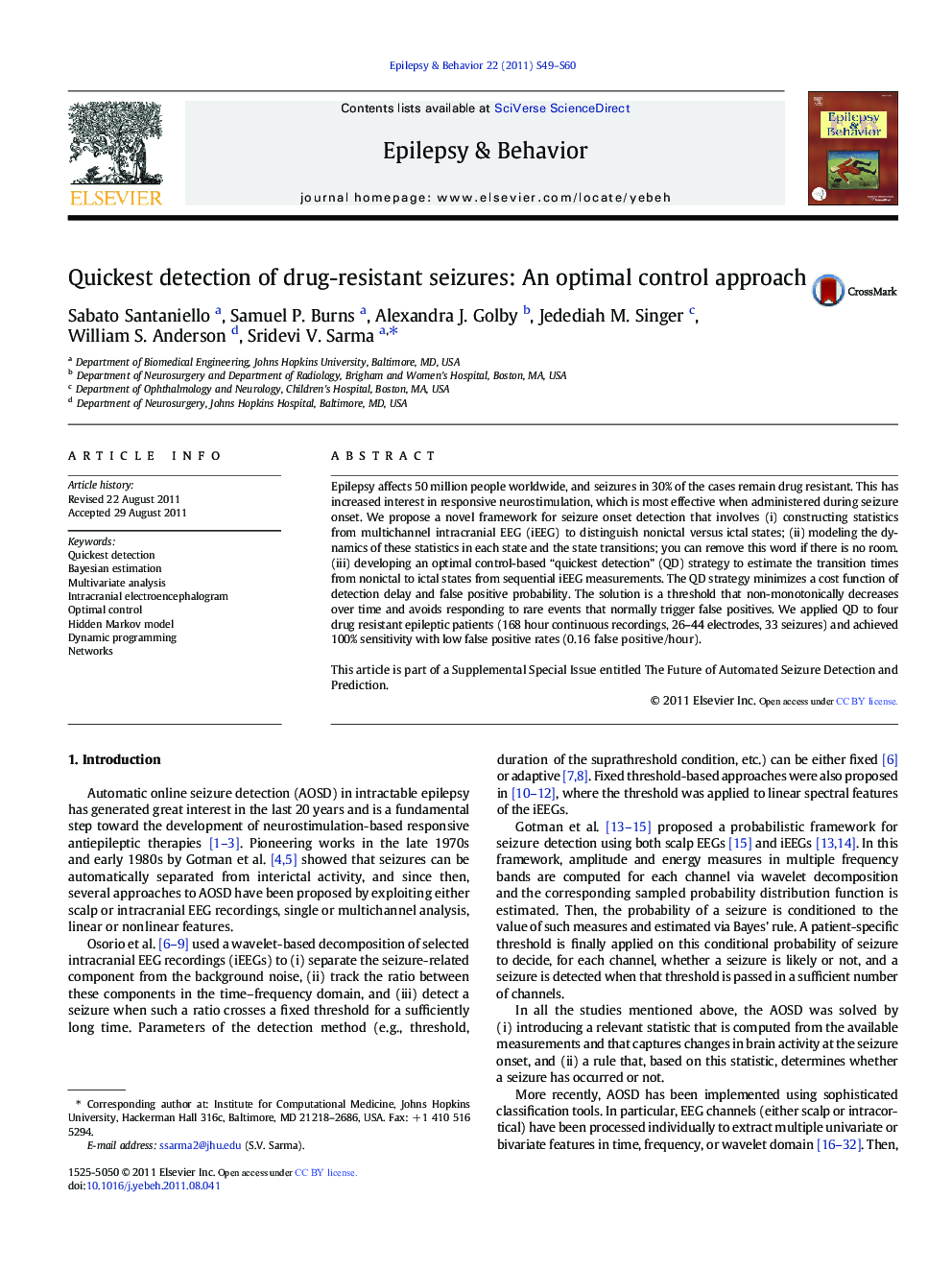| کد مقاله | کد نشریه | سال انتشار | مقاله انگلیسی | نسخه تمام متن |
|---|---|---|---|---|
| 6014503 | 1185935 | 2011 | 12 صفحه PDF | دانلود رایگان |

Epilepsy affects 50 million people worldwide, and seizures in 30% of the cases remain drug resistant. This has increased interest in responsive neurostimulation, which is most effective when administered during seizure onset. We propose a novel framework for seizure onset detection that involves (i) constructing statistics from multichannel intracranial EEG (iEEG) to distinguish nonictal versus ictal states; (ii) modeling the dynamics of these statistics in each state and the state transitions; you can remove this word if there is no room. (iii) developing an optimal control-based “quickest detection” (QD) strategy to estimate the transition times from nonictal to ictal states from sequential iEEG measurements. The QD strategy minimizes a cost function of detection delay and false positive probability. The solution is a threshold that non-monotonically decreases over time and avoids responding to rare events that normally trigger false positives. We applied QD to four drug resistant epileptic patients (168 hour continuous recordings, 26-44 electrodes, 33 seizures) and achieved 100% sensitivity with low false positive rates (0.16 false positive/hour). This article is part of a Supplemental Special Issue entitled The Future of Automated Seizure Detection and Prediction.
⺠A control-theoretical framework for automatic online seizure detection is proposed. ⺠This framework combines iEEGs, network-based statistics, and optimization tools. ⺠The detection algorithm minimizes detection delays and probability of false alarms. ⺠Reported results show 100% sensitivity and low false positive rates.
Journal: Epilepsy & Behavior - Volume 22, Supplement 1, December 2011, Pages S49-S60